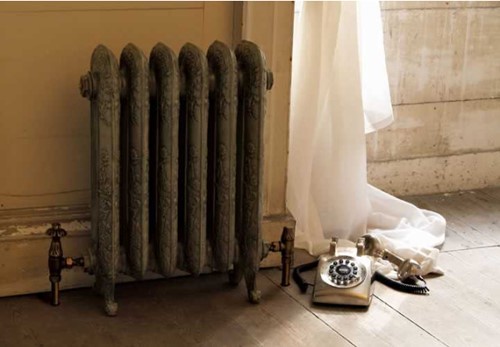Posted: Monday, January 1, 0001

If you want your radiators to last for years or even decades, you have to take proper care of them and this will include preventing rusting.
Now, just to make clear, of course radiators at Trads are made to the highest quality and won’t rust. So, this is more of a general care guide to answer some key questions, including why radiators rust, plus, what you can do to fix it and avoid it from happening.
Trads is here to explain everything about rusting radiators and what you can do to avoid it forming on your radiators…
Rust - or corrosion - forms on radiators for two reasons, leaks and a build-up of sludge inside. Sludge can be a cause behind leaks.
Radiator sludge, a black substance, if untreated, will build-up over time. Aside from affecting the performance of your home heating, it will cause rusting from the inside. This will end up eating tiny holes in the radiator, causing leaks. Sludge can damage the boiler, pump and radiator valves, as well as causing blockages in the pipework.
Water will always react with steel and metals. That’s why you often see rust on ships or outdoor metals, for example. It’s all about a straightforward chemical reaction. What you need to do is inspect your system and remove any sludge or debris that might cause the radiator to stop functioning correctly.
The first, and most important step, is to get an annual radiator and boiler service in the summer or early autumn to prevent any small issues becoming big problems.
The next step is to flush your radiators to remove sludge and debris from the system. Sludge forms if your radiators are particularly old. Considering radiators can last for decades, it can be a common problem unless your radiators are well cared for. The sludge collects at the bottom of your radiator and gets larger.
Flushing will force water through the radiator with a hose pipe. This is different from power flushing, which is used when there is a large amount of sludge.
If you need a power flush, an engineer will connect a machine to your heating system. This will push a powerful, low-pressure flow of liquid through your system to dislodge sludge and rust, clearing the system.
You can flush a radiator yourself, particularly if there isn’t a large amount of sludge in your radiator. If you can remove and lift a radiator, or get someone to help, then you can flush a radiator yourself with basic equipment.
Read more in our dedicated blog: How to Flush a Radiator
Another step you can take is to fit a magnetic filter that attracts any metallic debris which develops in the system. After the filter is fixed, water will flow through it as normal and debris will be collected in it before they have a chance to do any harm to your radiator.
In this instance, a leaking radiator doesn’t always need to be replaced with a new one, but there are things you can do if you’ve found a leak or that your radiator is wet.
Important: The key to stopping corrosion and rust forming on radiators is to tend to them before there’s even a noticeable problem. Maintenance is vital.
If there is rust on your radiator, don’t worry, it doesn’t mean it has to go to the scrap heap and be replaced - you can remove the rust and have it sparkling in no time.
There a number of ways to remove rust from a radiator using methods and products you can find around your kitchen, which include:
You can also use a rust remover, which is chemically-based, that you can buy from most shops as well as a metallic brush - such as a Brillo Pad to remove the rust. Metallic brushes should only be used for tougher spots, along with sandpaper.
Is it time you updated your radiators? Here at Trads, we have an excellent range of beautiful cast iron and steel radiators to update your home with!
Feel free to contact us if you need any help choosing a radiator
< Back To Blog